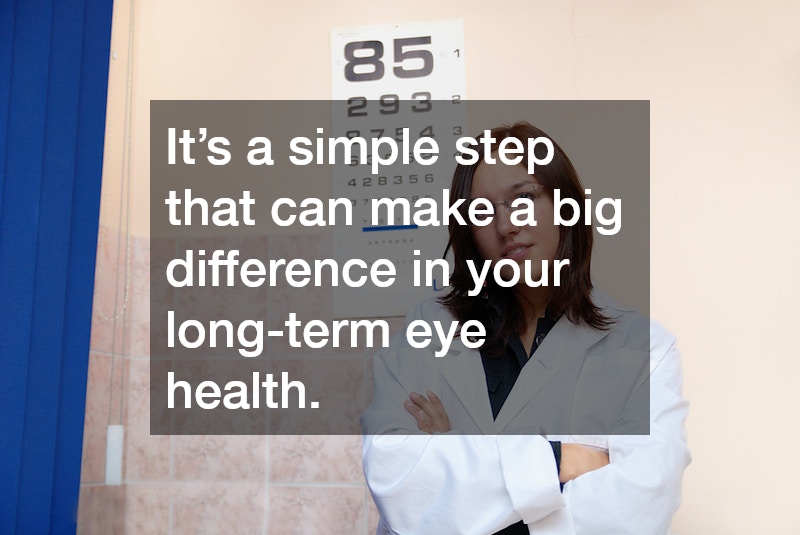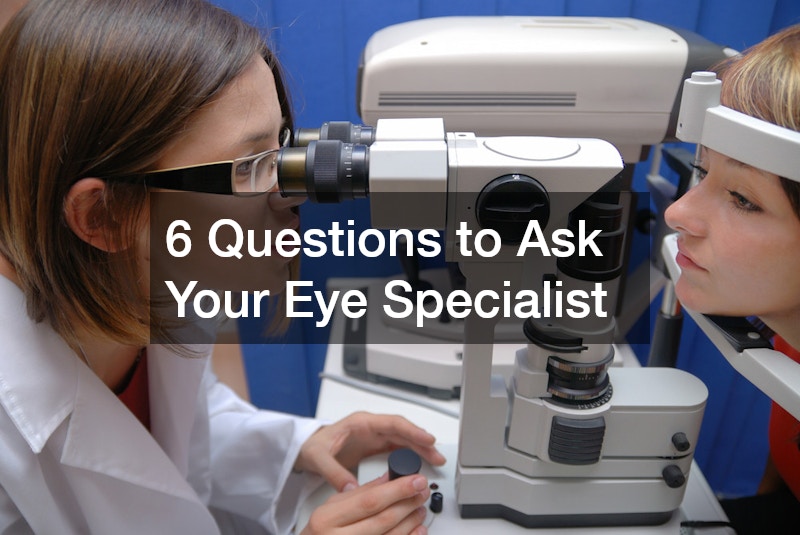Your eyes are among the most important organs in your body, yet they’re often overlooked when it comes to regular healthcare. Scheduling routine visits with an eye specialist is essential for maintaining good vision and detecting early signs of eye conditions. However, simply booking an appointment isn’t enough—you need to ask the right questions to make the most of your consultation.
Whether you’re seeing an eye specialist for a routine check-up, experiencing vision changes or considering corrective procedures, it’s crucial to go in prepared. Here are six key questions you should ask during your visit.
1. What Tests Will You Be Performing Today?
Understanding the procedures your eye specialist will be performing gives you clarity about your eye health and helps reduce any anxiety. Common tests include visual acuity checks, slit lamp examinations and intraocular pressure measurements. These tests assess the clarity of your vision, examine the physical structure of your eyes and check for signs of glaucoma.
Knowing what to expect can help you prepare, especially if the tests require dilating your pupils or if you’ll need someone to drive you home afterwards. It also allows you to ask follow-up questions based on your unique circumstances or medical history.
2. Are There Any Early Signs of Eye Conditions I Should Be Aware Of?
Many eye conditions—like macular degeneration, glaucoma or diabetic retinopathy—can begin developing without obvious symptoms. Early detection is key to effective management.
Ask your eye specialist if they noticed any signs of developing issues or if you’re at risk due to your age, lifestyle or family history. If you have conditions like diabetes or hypertension, your eyes could be at higher risk and your specialist can tailor your care accordingly.
This question also opens the door to understanding how often you should return for future exams or whether you should be monitoring specific symptoms at home.
3. How Has My Vision Changed Since My Last Appointment?
Vision changes can be gradual and sometimes difficult to notice. Your eye specialist keeps records of your eye exams and can compare results over time to detect even subtle changes.
If there’s a shift in your prescription or the structure of your eyes, you’ll want to know why it’s happening. Is it a natural part of ageing or is there an underlying condition that needs to be addressed? Understanding the nature of these changes helps you make informed decisions about corrective lenses, surgery or other treatments.
4. Do My Current Lifestyle & Habits Affect My Eye Health?
Your daily routines can have a significant impact on your eye health. Spending long hours in front of screens, smoking, poor diet or not wearing UV-protective sunglasses can all contribute to vision issues.
Ask your specialist if there are any habits you should modify or adopt to protect your eyes. For instance, they may recommend the 20-20-20 rule for screen use, advise on dietary supplements or suggest specific protective eyewear.
Customised advice from your eye care provider is more reliable than generic tips found online and is based on your personal risk factors and eye health profile.
5. What Are My Options for Vision Correction?
If you’re dealing with myopia, hyperopia, astigmatism or presbyopia, you might be eligible for various corrective options such as glasses, contact lenses or even laser surgery. Each option has its pros and cons, depending on your lifestyle, budget and comfort.
Have your eye specialist explain the differences and make recommendations based on your prescription and eye health. For example, contact lenses may not be suitable for people with dry eyes and surgery isn’t ideal for everyone. Understanding your options empowers you to choose the best solution tailored to your needs.
6. What Can I Do to Prevent Eye Conditions in the Future?
Prevention is always better than a cure. Even if your eyes are currently healthy, it’s wise to ask how to keep them that way. This might include dietary changes, taking specific supplements, using protective eyewear or adjusting screen habits.
Your eye specialist may also recommend more frequent check-ups if you’re at higher risk for conditions like glaucoma or cataracts. Following professional guidance can help you preserve your vision and avoid complications later in life.
Take Charge of Your Eye Health with the Right Questions
Seeing an eye specialist isn’t just about getting a new pair of glasses—it’s an important part of your overall health routine. By asking the right questions, you gain valuable insights into your current eye health, understand how to protect your vision and prepare for any future needs.
Remember, good communication with your healthcare provider leads to better outcomes. So, the next time you visit your eye specialist, bring this list of questions with you. It’s a simple step that can make a big difference in your long-term eye health.
.

